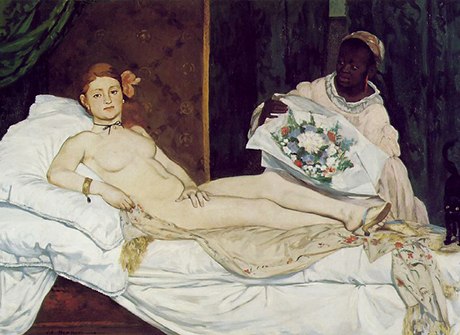
A sentiment that I have found is shared amongst many Nigerians is the idea that we spend too much time talking about colonisation and that we overemphasise its effects on Nigeria, Africa, and our current situation. The dismissal of the violent history of colonisation and its perpetual effect is evident in the recurring joke about going back to being under foreign rule. Whilst it is a joke which is made in response to the poor governance and state of the country, it also shows the ignorance surrounding colonisation and its continued effect. Nobody should want to have their cultures and knowledge systems annihilated. Nor for their history and contributions to the world erased by peoples who perceive themselves to be more evolved.
One does not have to search for long before learning about King Leopold’s notorious violence against the Congolese people. So, to make a joke about wanting to be recolonised reflects not only ignorance about the history of colonisation, modernity, and globalisation, but also shows its perpetual effect on us in the little value we have for our own culture, knowledge, and ability. To address a problem, you must first understand it. Yes, it is important to hold our leaders accountable for their actions, but it is also important that we look at our country within the context it exists.
Whilst colonialism is often thought of as a thing of the past, which has little relevance in explaining today’s world, the opposite is true. Firstly, colonialism is still prevalent. Countries like the UK and USA still maintain control over colonial territories. There are still settler-colonial countries like Australia and Canada where indigenous lands were colonised, and where their oppression which is systemically entrenched, is yet to be properly and satisfactorily addressed. Secondly, despite centuries of imperialism and colonialism (the 1800s-1960s), most countries in Africa only gained their independence in the mid-60s, and the stronghold of Western powers on the economic, social, and cultural realities of post-colonial countries still exists. As noted by Grosfoguel,
‘One of the most powerful myths of the twentieth century was the notion that the elimination of colonial administrations amounted to the decolonization of the world. This led to the myth of a ‘postcolonial’ world. The heterogeneous and multiple global structures put in place over a period of 450 years did not evaporate with the juridical-political decolonization of the periphery over the past 50 years. We continue to live under the same ‘colonial power matrix.’ With juridical political decolonization we moved from a period of ‘global colonialism’ to the current period of ‘global coloniality’.
Indeed, the prevailing effects of colonialism are termed as coloniality by Quijano, which refers to:
long-standing patterns of power that emerged as a result of colonialism, but that define culture, labour, intersubjective relations, and knowledge production well beyond the strict limits of colonial administrations. Thus, coloniality survives colonialism. It is maintained alive in books, in the criteria for academic performance, in cultural patterns, in common sense, in the self-image of people, in aspirations of self, and so many other aspects of our modern experience. In a way, as modern subjects, we breathe coloniality all the time and everyday.
In this regard, I believe that a proper conversation about the prevailing effects of colonisation on our country and continent, and how we as a nation can embody anti-colonial ideals, is yet to be had. Africa’s problems, including its state of underdevelopment, are not only due to internal factors such as corruption, poor leaders, and economic mismanagement. Instead, the problems are also a result of external forces. Therefore, to understand Africa’s current situation both external and internal forces need to be understood.
We have decided to take on the challenge of promoting decolonial thinking; to understand how our refusal to address the effects of colonisation on us as a people continues to haunt us. It is ingrained in everything; our history, our culture, our religion, the way we interact with each other, and our rebirth (independence). Everything. This is not aimed at romanticising the pre-colonial era or about thinking that colonisation alone is responsible for our state: I am aware that our leaders are corrupt and inept disgraces. Instead, it is about giving us the bigger picture, helping us reclaim ourselves and our identities so that we can demand better. Knowing our history, understanding our global positioning in the world and highlighting and prioritising diverse African perspectives, are a few of the most empowering things that we can do. In other words, we will be promoting decolonial thinking by using the ideas of coloniality and coloniality of knowledge, power and being, to help create a deeper understanding of Africa, our culture, our history and thus, ourselves.
Colonisation
Most countries struggling socially and economically today are former European colonies, and this is unsurprising. Europeans perceived indigenous people as barbaric, primitive, and child-like; in need of their help and guidance to become ‘civilised’. Victims of colonisation were brutalised, enslaved, raped, dehumanised and in some cases completely erased. It was a violent act. The practices of colonisation went beyond forcing Western culture on indigenous people. Some ex-colonies like Nigeria often underestimate the injustice that came with colonisation. This may be because of the varying levels of violence perpetrated by colonisers. For example, the shocking displays of brutality by King Leopold of Belgium cannot be compared to much else. King Leopold treated Congo as if it were his playground, and as though the people of Congo were nothing more than soulless props in his world. Leopold’s rubber plantations were notorious for their inhumane and brutal treatment of indigenes. Members of farming families were known to have their hands cut off when they did not meet their quota.

Yet, regardless of the level of violence perpetrated, all colonised peoples were subjected to cultural and knowledge annihilation, social and economic underdevelopment and much more which will be explored later. The blatant disregard all colonists had for colonised peoples is evident in the patronising and outrageous acts like the scramble for Africa and the artificial boundaries created which to this day are still a key factor in contemporary African issues. To truly understand the horrors of colonisation and why its effects are still so prevalent, one must understand the principles upon which it is based.
Race and colonisation
As defined by the Anibal Quijano:
Coloniality is one of the specific and constitutive elements of the global model of capitalist power. It is based on the imposition of a racial/ethnic classification of the global population as the cornerstone of that model of power, and it operates on every level, in every arena and dimension (both material and subjective) of everyday social existence and does so on a societal scale.
The classifications of race by Western philosophers during the Enlightenment period acted as a justification for colonisation and still dictate social relations. The Age of Enlightenment was an intellectual and philosophical movement that dominated the world of ideas in Europe during the 17th and 18th centuries. It introduced ideas of liberty, progress, equality, reason and constitutional governments. However, what is often overlooked is the role the enlightenment period played in solidifying notions of race as we understand it- allowing physical difference to become the basis of who can or cannot be oppressed. This is not to say that there were not already conflicts based on different religions or different physical features- events like the Spanish Inquisition shows that there was already an inclination to discriminate. However, it was the racial divides created in the Enlightenment period that allowed for the ‘white-over-black’ ideology that we understand today.
If the philosophers of the Age of Reason were writing about notions such as equality, morality, and natural rights, the question is how this co-existed with slavery and colonisation. It was because these ideals were created with a certain type of people in mind- white people.
For example, Johann Friedrich Blumenbach’s 1776 volume On the Natural Varieties of Mankind posited five divisions of humanity; Caucasians, Mongolians, Ethiopians, Americans, and Malays. Although his descriptions were of physical characteristics rather than intellectual traits, he still established that Caucasians were the original human race, from which other races stemmed from. They were, he affirmed, “the most handsome and becoming,” having “the most beautiful form of the skull”.
German philosopher, Christopher Meiners, in 1798, wrote about ‘fair’ people being superior in terms of beauty and intelligence, and ‘darker, coloured people’, being ugly and primitive. Thus, it is unsurprising that a hierarchy of groups was soon accepted, placing white Europeans at the top of the taxonomy. Similarly, David Hume noted that: “I am apt to suspect the Negroes, and in general all other species of men to be naturally inferior to the whites. There never was any civilized nation of any other complexion than white, nor even any individual eminent in action or speculation.”
This racial hierarchy cemented the way the West interacted with Africa during colonisation and imperialism. It led to eurocentrism which allowed for binaries of ‘primitive – civilised’, and ‘traditional-modern.’ It was this logic that allowed for the dehumanisation of Africans who were forced to endure conditions which would today be considered to be a gross violation of human rights.
The continuation of the Colonial Rhetoric
The notion of coloniality highlights the dark side of enlightenment and modernity. It reflects the relationship Africa and other ex-colonial countries have with the West in the modern world. As noted by Ndovlu, ‘It is a global hegemonic model of power established since the colonial encounters that articulated race and labour, as well as space and peoples, according to the needs of capital and to the benefit of white European peoples.’
Thus, despite the physical colonisation of lands being largely over, the relationship Africa has with the West is still based on these racial and colonial ideals. Africa is still seen as a continent that is only good for exploiting. This is supported by the collective selective amnesia of the West; positing questions and research as to why the continent is under-developed, despite Westerners playing an active role in its underdevelopment. Rodney in How Europe Underdeveloped Africa notes that the underdeveloped are the richest in natural resources and the wealthy capitalist countries are resource-poor. Yet, economists from the West try to make their economic strength sound God-given, which allows for the overlooking of all forms of exploitation.
In this way, we do not reflect upon the systemic exploitation and oppression that places Africa in the position it is in in the global capitalist order. Instead, globalisation masks itself as a guilt-free process that led to a more connected world through the development of technology and complex markets. Meanwhile, it is a process that promotes the main form of social, political, and economic frameworks through the development of policies such as Structural Adjustment Programmes by Western governments and imposed on other states by international organisations like the World Bank and the IMF. It insidiously perpetuates the logic of colonialism which maintains the racial hierarchies created during the enlightenment period in which Europe designated itself as the epitome of civilisation and their knowledge became universal, thereby, pushing Africans to the bottom of the development ladder and marginalising our voices and knowledge systems.
The notion of coloniality does not end in the global domination by the West. Instead, knowledge systems, philosophy, religion, language, and culture were also determined by the West. Not only was their race viewed as superior, but their knowledge systems and philosophy were also posited as universal. In the process, indigenous knowledge systems were dismantled and marked as ‘backwards’ and undeserving of recognition. In this way, what we understand as modernisation is really another term for westernisation.
This is why Steve Biko calls for black consciousness. As noted by Biko, black consciousness, ‘The philosophy of Black Consciousness, therefore, expresses group pride and the determination by the blacks to rise and attain the envisaged self. At the heart of this kind of thinking is the realisation by the blacks that the most potent weapon in the hands of the oppressor is the mind of the oppressed.’ In this regard, the decolonisation of education in West Africa is not only crucial for the development of individual identity but also for the recognition that Africa shares a common history and destiny, and it is only by working together that Africa as a continent can move forward. If we Africans do not know our history, then we are incomplete and incapable of making any radical change to their realities. Black consciousness thus reveals the transformability of one’s reality.
Colonisation of the Mind.
In post-colonial countries, like mine, Nigeria, colonialism still influences the way we see ourselves. More importantly, our leaders inherited colonial structures and ideology which they continue to uphold and maintain to their benefit. Thiong’o refers to colonisation as the ‘cultural bomb’ whose effect is to ‘annihilate a people’s belief in their names, in their languages, in their environment, in their heritage of struggle, in their unity, in their capacities and ultimately in themselves.’
Indeed, this cultural bomb wreaked havoc on us, its effects lingering, and evident in the way we seek Western validation at the expense of our languages, culture and knowledge systems, both across the country and continent. We place the values of our colonisers on a pedestal and internalise their view of us as backwards and underdeveloped. This leads to the colonised seeing themselves as incapable of changing their realities and holding their oppressors in high regard, thereby representing, and perpetuating the views of their oppressors. Globalisation has only further entrenched this. Yet, we have not had a conversation on how this affects us and what we need to do to create anti-colonial societies.
The current curriculum has done nothing to challenge colonial traditions of education, thereby representing and perpetuating colonial ideals about the world and how it should work. Indigenous knowledge and culture have been displaced by the Western knowledge hegemony for too long, and this has led to two struggles.
Firstly, most Nigerians know little about their history, their philosophy, and their literature. For example, the literature curriculum at worst prioritises Western writers and at best provides a limited choice of Nigerian authors with no reference to great writers across the continent. History was banned as a subject in the Nigerian primary and secondary school curriculum in 2007! Personally, I did not know about the Biafran war until I read Half of a Yellow Sun!
Secondly, our ignorance about our contributions to the world has affected our perspective of the world. The fact that we have a poor standard of living in comparison to the West also does nothing to help this. When left to make sense of your reality with little to no information, coupled with the heavy Western propaganda we are all exposed to… it’s easy to underestimate the relevance of knowing your history in understanding your present and envisioning your future.
The continued effect of colonisation on us as a people is worth talking about. We as a nation are yet to have an anti-colonial conversation. We can only go so far if all our energy is focused on the internal issues without understanding how external forces may in some cases cause, and in many cases exacerbate them. This piece is the first of a series exploring the prevailing effects of colonisation and how its stronghold on us is preventing us in many ways from moving forward.
Community.

